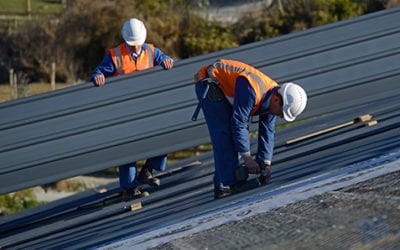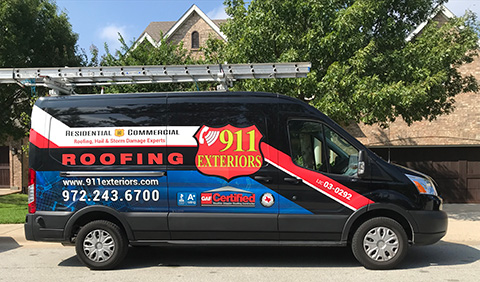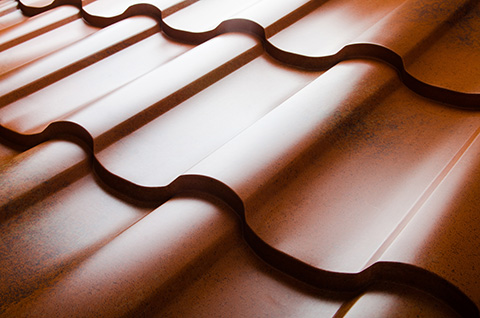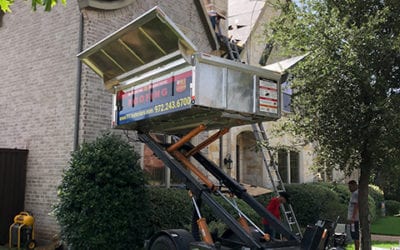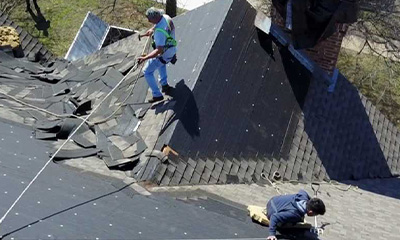Your roof is — beyond the shred of doubt — the most important part of your home. When it has flaws, the very integrity of your home is at risk. Even minor cracks in your roof could lead to leakage issues, which could, in turn, lead to serious water damage that could cost thousands of dollars to repair. In addition, a leaking roof can pave the way for mold and mildew build-up, requiring extensive mitigation measures. It may even provide an opening for rodents, which again poses a complicated and costly problem.
It is pretty obvious that if your roof is damaged beyond repair or just too old, you will need to replace it with a new one ASAP to keep your home’s structural integrity intact… and you, your loved ones and your belongings safe.
That being said, you cannot just buy some equipment and roofing materials and start replacing your roof right away. You need a permit to do so.
When do you need a permit?
The permit you need to replace your roof is just the same as you would need if you were doing any extensive work on your home.
The general rule of thumb is that permits are deemed necessary when you are renovating, installing an extension, or making changes that may affect the structure of the house.
On the other hand, if the work is minor enough, a permit is not necessary. For example, performing routine maintenance to your roofing system will generally not require a permit, but the replacement of the entire roof most definitely will.
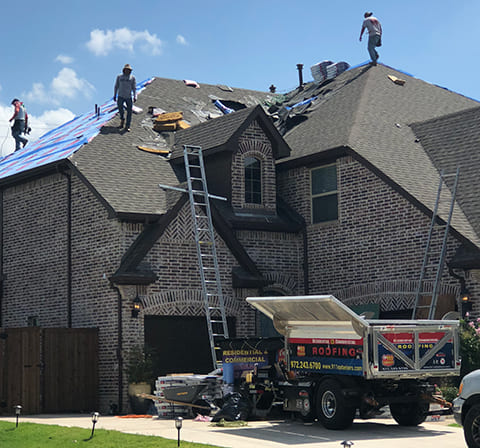
Can you get a permit for roof replacement?
If you are going to be replacing your roof yourself, you can obtain the permit. However, if you will secure the services of a roofing contractor to remove the current roof and install a new one, the contractor will need to obtain the permit. Keep in mind, though; only a licensed contractor can apply for a permit.
What if you don’t have a permit?
If you are found to be doing any sizable roofing work (such as installing a new roof) without the necessary permit, the building inspector may:
- Issue a civil fine to you or your roofing contractor;
- Order all work to be stopped in its tracks until the required permit has been obtained; or even
- Order to remove any work that has been carried out without the requisite permit. In other words, you might be required to completely tear up your brand new roofing system.
If your current roofing system is taken off, but not entirely replaced, stopping the roof replacement work in the middle could leave you, your family and your belongings unprotected.
Benefits of obtaining a permit.
Obtaining the necessary permit when replacing your roof protects you in a couple of ways.
In addition to protecting you from hefty fines or having to remove your “illegally constructed” roof entirely, permits also make sure that the roofing work you are having done complies with the building codes and standards. As a result, you can be confident that every aspect of your roof replacement project matches up to the standards set by industry experts.
A roof replacement permit can also be of value if you ever decide to list your home for sale. After all, it clearly indicates that you have a new or relatively new roof on your home, which is always a big selling point.
If a would-be buyer knows that, in the near future, they will be pouring a lot of money into an aging roof, they can ask to deduct those expenses from the final price as a condition of the sale. On the other hand, a new roof adds value to your home, as it offers some financial protection for the home buyer. Be that as it may, if you have had your old roof removed and a new one installed, any buyer will want to see proof that the roof replacement work has been done lawfully. If you are not able to produce a permit for roof replacement, that could result in significant complications with the sale.
Why should you hire a licensed contractor?
As we said above, only a licensed roofing contractor can apply for a needed permit for roof replacement. Even so, that is not the only reason why you should partner with a licensed contractor.
In order to get hold of a license, a roofing contractor must pass the required tests and produce proof of experience working under another licensed roofing contractor. For that reason, hiring a licensed contractor makes it more likely that you get a seasoned, competent roofing contractor. On top of that, licensed roofing contractors are insured and bonded, which could save you from serious problems down the line. A valid insurance policy protects you, and the contractor in the event that anyone gets injured during the roof replacement. Without a policy, any accident that takes place on your property could put you at risk of a civil lawsuit… and you could lose a considerable amount of money.
Professional Roofing Contractor In Dallas, Texas.
If you are ready for a high-quality roof replacement, contact the Dallas roofing experts at 911 Exteriors Roofing & Fence today. We will determine if permits are necessary depending on the size and scope of the roof replacement, obtain them if they are, and take care of all the paperwork… so all you have to worry about is the final estimate.
To discuss your next roofing project, call us today at 972-299-3770!

